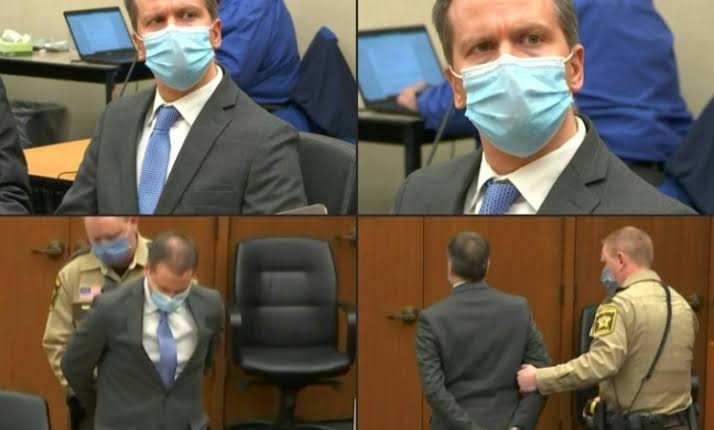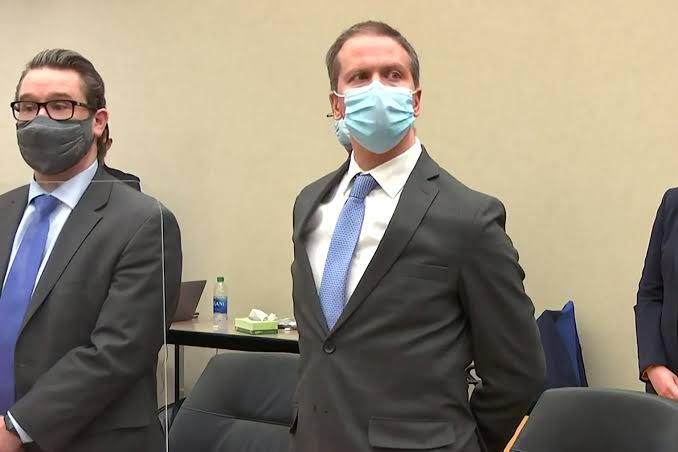The police officer who killed African-American, George Floyd and set the United States in motion for series of controversial moments in 2020 has been trying since Wednesday to have his murder conviction overturned during an essentially symbolic appeal hearing.
Derek Chauvin, 46, was found guilty of murder following a high-profile 2021 trial by a state court in northern Minnesota and sentenced to 22.5 years in prison.
He feels that his right to a fair trial has been violated, mainly due to the “publicity” about the case and the “threats of violence” that should have brought about a change of scenery in the hearings, and asks that the verdict be overturned.

Regardless of the outcome of that appeal, Derek Chauvin will remain in prison because he pleaded guilty to George Floyd’s “civil rights violations” before a federal judge and was sentenced in 2022 to a final sentence of 21 years.
On May 25, 2020, this 19-year-old Minneapolis police officer knelt on the 40-year-old black man’s neck for nearly 10 minutes, oblivious to his groans and the interventions of panicked bystanders.
The scene, which was filmed and posted online, sparked massive protests against racism and police brutality in the United States and abroad.
During the trial in circuit court, his attorney defended George Floyd’s death from an overdose, in addition to health issues, and confirmed that Derek Chauvin was right to use violence.
Today, the former police officer is trying to overturn that judgment, especially since it took place in the Minneapolis-Saint Paul twin cities, which were still on edge less than a year after the tragedy.
Also, read; President Paul Kagame’s Son, Ian Kagame Joins Elite Presidential Guard
In his lawsuit, his lawyers recalled “threats” against jurors, fears of a new fire for the two cities if acquitted and daily coverage by local media that “idealized George Floyd and demonized Derek Chauvin”.
According to his lawyers, the inability of the court to hold hearings in rural areas of the state would have prevented it from discovering in the middle of the trial that the city of Minneapolis had decided to compensate people close to George Floyd up to $27 million.

They also pointed to the “supposed” lies of a juror who covered up his participation in the demonstrations after the death of George Floyd and accused prosecutors of taking “cumulative” testimony from seven police officers and experts about the use of force.
Prosecutors responded in a separate argument that the trial was “one of the most thorough and transparent” in history, that jury selection took two weeks and that the verdict should stand.
Three other police officers who watched as George Floyd suffered received prison terms of between two and a half and three and a half years.

